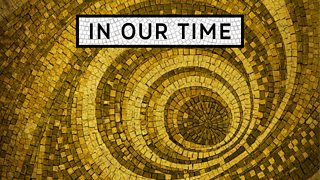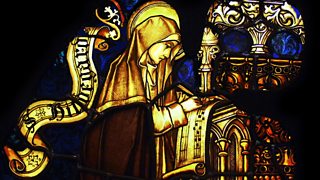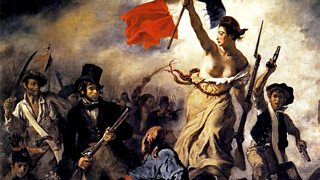Teach Yourself A Lesson: Delve Deeper Into English Literature With In Our Time
Find yourself stuck inside with a bit of time on your hands?
Well, you are in luck because if you want to improve yourself with a bit of self-study or you need some inspiration when it comes to home-schooling, or you just have a deviously curious mind, there are hundreds of In Our Time episodes dedicated to culture and the written word.
Pretty much every facet of prose, poetry and drama has been covered during the past 20-plus years by Melvyn Bragg and his expert panels. So dive in!
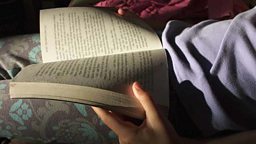
Pre-1700s
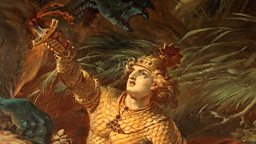
The epic poem Beowulf, which survives in a single manuscript dating from around 1000 AD, and was almost completely unknown until its rediscovery in the 19th century, has been translated into modern English by such notable writers as William Morris, JRR Tolkien and Seamus Heaney - but why has it survived and what resonance does it have today?
The tale of Sir Gawain and Green Knight dates from around 1400, but also remained largely hidden until the 19th century. This edition of In Our Time includes Simon Armitage, now the Poet Laureate, who has published his own modern translation of Gawain.
The forger, brawler, spy, poet and playwright Christopher Marlowe created Tamburlaine, Edward II and The Jew of Malta before his untimely death at the age of 29 - what would have his legacy have been if he’d lived as long as Shakespeare?
The legacy and continued influence of his most famous work, Doctor Faustus, is examined in a programme dedicated to the Faust myth and its re-tellings.
The literary and political career of the poet John Milton, author of Paradise Lost, is looked into and his motivations explored.
And the figure often called the father of English literature, Geoffrey Chaucer, is reevaluated - why does his poetry still seem to speak to us today?
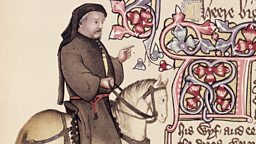
Shakespeare

The life of William Shakespeare has been a mystery that has confounded experts since the playwright’s death. How did the low born son of an illiterate craftsman write with such skill and erudition?
How historically accurate were Shakespeare’s plays and how have they coloured our current view of the past? Over two episodes, In Our Time delved into his Roman plays and his Plantagenet works.
There are also individual episodes dedicated to Hamlet, King Lear, The Tempest and A Midsummer Night's Dream.
Shakespeare’s legacy is the concern of Shakespeare’s Work, and his continued appeal to academics and scholars is looked at in Shakespeare and Literary Criticism, with contributors including the renowned and sometimes provocative American critic and writer Harold Bloom, who died in 2019.
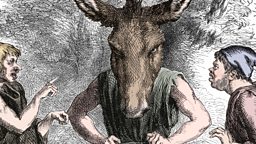
1700-1800
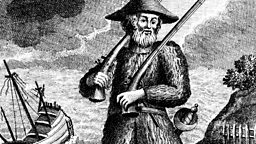
Laurence Sterne’s comic masterpiece Tristram Shandy is still read and enjoyed extensively, but what is it about this work that still resonates with readers?
Why does Daniel Defoe’s enduring fantasy Robinson Crusoe keep inspiring generations of new readers?
One of the most celebrated works in French literature, the biting satire Candide, is examined and its continued success explored - does its comedy still hit the target?
There’s more satire as Jonathan Swift and one his most controversial works A Modest Proposal is dissected and its capacity to still shock explored. The vogue for epistolary literature, including work by Aphra Benn, Samuel Richardson and Jane Austen, is delved into - why isn’t this style of book popular today?
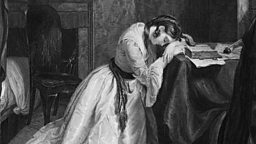
1800-1900
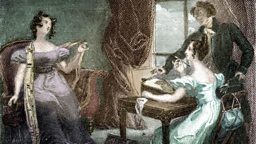
The final work to be published in her lifetime, Jane Austen’s sparkling comedy of manners Emma has its lasting legacy explored.
The Brontes are discussed in episodes dedicated to Jane Eyre and Wuthering Heights while George Eliot’s classic Middlemarch and its influence on the Victorian fiction are considered.
The radical differences between Mary Shelley’s novel Frankenstein and the development of its characters in the popular imagination are examined.
Two giants of literature have their lives and careers investigated in episodes dedicated to Dickens and Wilde. One of the most celebrated works in American fiction, Melville’s Moby Dick is tackled, and the reasons behind the controversy surrounding Thomas Hardy’s Tess of the d’Ubervilles are looked into.
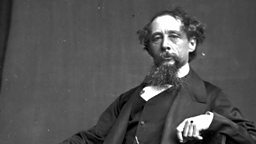
1900-Present day
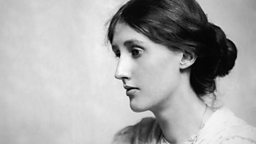
The poetry of TS Eliot and its influence on the modernist work of the era are examined in episodes focusing on The Waste Land and Four Quartets.
There is more poetry discussed as WH Auden, Lorca, Siegfried Sassoon and Yeats are put under the spotlight.
Two major works of James Joyce: A Portrait of the Artist as a Young Man and Ulysses are considered and assessed as is the work of fellow Irish genius Samuel Beckett.
How has the critical opinion of Virginia Woolf’s Mrs Dalloway changed since its publication in 1925? Why did Kafka wish for his work, including The Trial, be destroyed after his death? Plus two pioneering, innovative novels are discussed and dissected: Aldous Huxley's Brave New World and Orwell’s Animal Farm.

More from In Our Time
-
![]()
In Our Time Podcast
Every episode of In Our Time is available to download.
-
![]()
The In Our Time Listeners' Top 10
The top ten programmes as suggested by In Our Time's audience, to mark the 750th edition.
-
![]()
In Our Time: Culture
Popular culture, poetry, music and visual arts and the roles they play in our society.
-
![]()
In Our Time: Science
Scientific principles, theory, and the role of key figures in the advancement of science.
